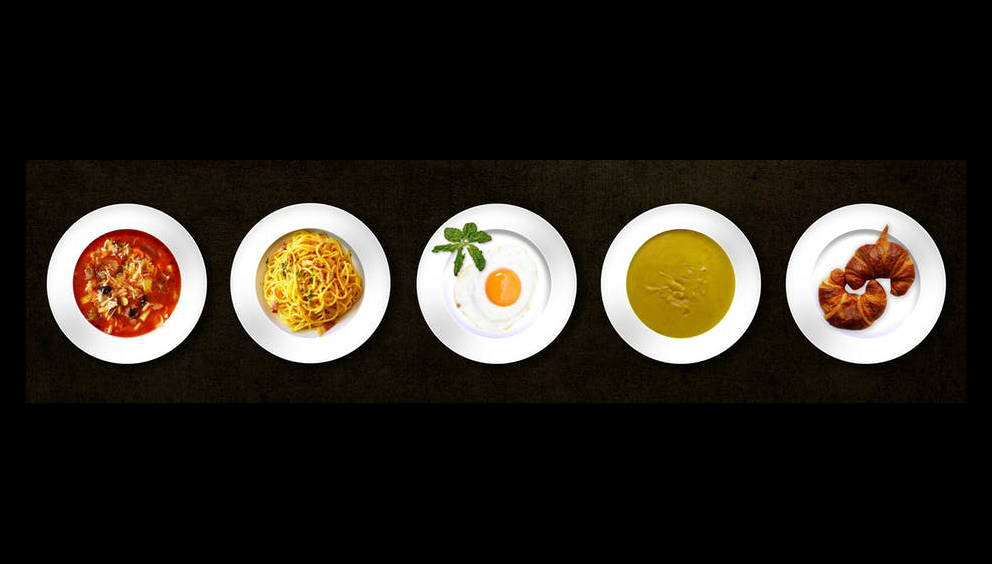Protein-rich insect food. Mushroom tea. Home-grown animal-less meat. Juice made from misshapen fruits. The Lebensmittelwissenschaft industry is replete with unimaginable yet promising innovations, and is one of the fastest-growing industries today. Through Kolabtree, we’ve got to see a wide range of food science projects that have needed the expertise of our freiberufliche Lebensmittelwissenschaftler - von der Herstellung glutenfreien Brotes bis zur Formulierung der perfekten Eiscreme.
Food tech startups are changing the way we source ingredients, formulate recipes, and process, package and store food. Which of course, changes the way we consume it. Given that ‘you are what you eat’, one has to admit that this is something to be both excited and concerned about. Who ever thought we’d one day be chomping on crickets or eating chicken-less chicken?
We’ve been keeping an eye on some of the emerging startups in this space, and here are some of the most fascinating food science innovators we’ve come across.
1. ChugaChaga
Chaga is a kind of mushroom that grows on birch trees in the Northern Hemisphere. It’s thought to have miraculous healing properties, and has been brewed into tea by the Chinese and Russians since ancient times. ChugaChaga, ein New Yorker Start-up-Unternehmen, will Chaga-Tee in Flaschen abfüllen und verkaufen, um die Verschwendung von losem Tee oder Teebeuteln zu vermeiden. Chaga-Tee gilt als Heilmittel für bestimmte Arten von Krebs, Herzkrankheiten, Diabetes und mehr.

Probe eines Chaga-Fruchtkörpers auf einer abgestorbenen Birke (Bild von Olli Niemitalo , Wikipedia)
A new type of superfood ‘shroom? With its immune-boosting properties, we’d say it offers a different kind of magic!
2. Memphis Meats
Sie lieben Ihr Huhn, sind aber besorgt über die Auswirkungen der Fleischindustrie auf die Umwelt? Memphis Meats hat eine Lösung gefunden. Mit Hilfe von Stammzellen, die sich zu tierischem Gewebe entwickeln können, will dieses Unternehmen aus San Francisco nachhaltiges Zuchtfleisch herstellen. Durch das im Labor gezüchtete Fleisch entfällt die Notwendigkeit, Tiere zu züchten, zu füttern und zu versorgen, und auch das Schlachten der Tiere selbst ist nicht mehr nötig. So können Sie das Stück Kebab ohne Schuldgefühle genießen.
3. Verrückt werden
Es stellt sich heraus, dass der Mensch nicht das einzige Lebewesen ist, das Probleme mit seinem Körperbild hat. Unförmiges Obst und Gemüse wird von den Supermärkten oft zugunsten ihrer besser aussehenden Verwandten aussortiert. Das walisische Unternehmen Wonky werden makes bottled juices from these “unfortunately shaped” fruit and veggies, showing us that the world can be truly inclusive. Coupled with environmentally-friendly packaging and bottles made from recycled glass, the startup aims to support growers that can’t shift wonky produce.
Because it’s never about the looks, y’know. It’s what’s inside that counts.
4. Winnow Lösungen
While we’re talking about food wastage, here’s a company that’s helping kitchens reduce their food waste by implementing a simple but powerful strategy: recording what goes into the bin. Winnow Lösungs has developed a ‘smart meter’ that measures the value of the food being thrown into the bin and displays it in real-time. The data is analyzed and presented such that the restaurant can understand and implement a comprehensive waste reduction plan as well as save on food cost. Winnow’s technology can help kitchens cut their food waste by 50%!
5. Foodini
What do you do when you want to whip up a fresh meal but dread having to bake, roast, stuff, toss, saute and shape? The answer might seem obvious a few years from now – you just 3D print the dish of your choice. Foodini’s kitchen appliance helps users make food from fresh ingredients, using 3D printing technology that can make breadsticks from dough, or stuff individual ravioli. Based in Barcelona, Foodini soll den Benutzern helfen, Zeit und Energie zu sparen und gleichzeitig gesunde Lebensmittel in allen möglichen ausgefallenen Formen zuzubereiten. Klingt, als hätten diese Jungs schon Unmögliches vollbracht, oder? Nun, das hatte Houdini auch.
6. Exo
Protein bars made of peanut butter and jelly sound pretty good, until you learn that they’re made of cricket flour. But hey, somebody’s got to solve the world food crisis, and insects are increasingly being considered as one of the key foods that can help feed billions of hungry mouths over the coming years. According to Exo, crickets produce 1% of the greenhouse gases that cows do, are a complete protein source and also contain twice the amount of iron as spinach does. Don’t think it’s recommended that you pop a jumping critter into your mouth, but served in apple cinnamon or blueberry vanilla flavours, it sounds almost tempting.
7. Flippy von Miso Robotics
Putting together a burger requires skill, speed and precision – from grilling the patty to perfection to adding just the right amount of sauce. If you’ve ever admired the expertise of a fast food joint worker, you’ve got something even more interesting in store – a burger-flipping robot taking on the job. LA-based Caliburger has hired Flippy, a hamburger-making robot designed by Miso Robotik. Flippy’s been slogging away behind the scenes at Caliburger’s Pasadena outlet. Automating the burger-making process means better productivity, better hygiene, and easier customization. High school kids looking for part-time jobs, you’ve got some serious competition here!
Miso Robotics hat einen Roboter entwickelt, der den gesamten Prozess der Burgerherstellung ohne menschliches Zutun übernimmt. Verabschieden Sie sich vom manuellen Grillen der Pattys und dem Füllen des Salats
8. Madame Schugah
Kalifornien Madame Schuga makes the “happiest cookies around”, which are vegan, gluten-free and soy-free. The unique thing about this shop is that not only do they sell cookies, but also cookie dough, which is a guilty pleasure for many of us!
9. Plenish Cleanse
Angesichts der Entwicklung der Welt scheint es, dass wir mehr denn je Entgiftungen und Reinigungen brauchen. Das britische Unternehmen Plenish Cleanse hilft mit biologischen, kaltgepressten Saftkuren, die für verschiedene Zwecke wie Gewichtsabnahme, Hautgesundheit usw. entwickelt wurden. Die Reinigungskur besteht aus 6 Säften à 500 ml pro Tag, die feste Nahrung ersetzen und den Körper mit wichtigen Mineralien und Vitaminen versorgen. Der Herstellungsprozess erfolgt unter Druck und nicht durch Hitze und ist so konzipiert, dass ein feiner Saft entsteht, der innerhalb von 10 bis 15 Minuten in den Blutkreislauf aufgenommen wird. Wenn man nur darüber liest, scheint es ziemlich aufbauend zu sein, also muss das echte Produkt wahre Wunder bewirken.
10. Zauberbonbon
Imagine a world where kids could design their own candy bars and see their imaginations come to life. That’s what Birmingham-based Magische Süßigkeiten is doing – 3D printing customized candy! You can print anything from dinosaurs and turtles to cartoon characters and giant geckos. And let’s not forget, you can even 3D print your own selfies in candy.
Judging by the list above, the future of food science looks well-stocked with exciting innovations and Forschung. Startups especially need to consult experienced and qualified food scientists who can propel their business in the right direction and validate the results of their research. Kolabtree’s global pool of freiberufliche Lebensmittelwissenschaftler helfen Restaurants und Lebensmittelherstellern, die richtigen Rezepte zu formulieren, die Haltbarkeit ihrer Produkte zu verlängern, biologische Zutaten zu identifizieren und ihr Geschäft anzukurbeln.
Have a food science startup you’d like to recommend? Let us know in the comments below or Tweet an uns!
